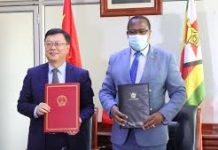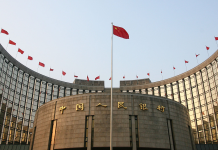BEIJING: The Think Tank & Media Forum on Global Economic Development took place in Beijing on March 8. Themed “Exploring new measures for win-win cooperation, and sharing new achievements in global development,” the event, hosted by China International Publishing Group (CIPG), attracted both Chinese and international experts, who shared their thoughts on global economic recovery and global governance in the post-pandemic world. This is an edited excerpt from what some participants said:
Du Zhanyuan, President of CIPG: Since COVID-19 started, health and safety issues, concerns about economic development and the improvement of people’s wellbeing have topped the list for countries in epidemic turmoil. Due to the pandemic, the world is suffering the worst economic recession since World War II. The World Bank said in October 2020 that 40 percent of the world’s population lived below the $5.5-per-day international poverty line.
The question remains: Which country possesses those indispensable key assets to shoulder the responsibility for future global development? Major countries need to actively respond to major responsibilities through practical actions. In 2020, China’s GDP exceeded 100 trillion yuan ($15.4 trillion) for the first time and China was the only major economy to experience positive growth.
Jean-Pierre Raffarin, former Prime Minister of France:
When it comes to economic development, we must always seek to better know and understand each other. Only through better communication and interaction can we understand each other better and achieve the common goal of world peace.
It is important that economic development lies at the very heart of global governance because what the world needs now, more than ever, is growth, development and shared benefits. Chen Wenling, chief economist at the China Center for International Economic Exchanges: Although economic recovery has recently emerged in several countries, especially in the U.S., it is often based on increasingly high deficits. Global debt has reached its highest level ever.
Meanwhile, poverty plagues humanity. Nowadays, 20 percent of the population uses 80 percent of the world’s resources, 1 billion people still struggle to access clean drinking water, and a further 1 billion worldwide face starvation. Therefore, these global challenges and problems require cooperation from all countries to address them. Sudheendra Kulkarni, founder of the Forum for a New South Asia: The rise of China has accelerated changes in the global economic and political order. The world is no longer a unipolar entity, and the U.S. is no longer its No.1 dominant force.
China’s development is an extremely helpful example for the promotion of global diplomacy. However, those who dominated the old world order have yet to reconcile with this new reality. In the economic sphere, the latter nations are trying to break and disrupt global industrial supply and value chains, all in the name of reducing the global dependence on China. In the strategic sphere, they are trying to construct a NATO-like alliance in Asia. These attempts are doomed to fail.
Major economies must take on a bigger role in reaching a fully carbon neutral and carbon recycling economic development. To make this dream a reality, the world must fully embrace and adopt new and green technologies. Another prerequisite in this regard is extensive cooperation and preparation among major economies to reach the goals and commitments of the Paris Climate Agreement.
– The Daily Mail-Beijing Review News exchange item






